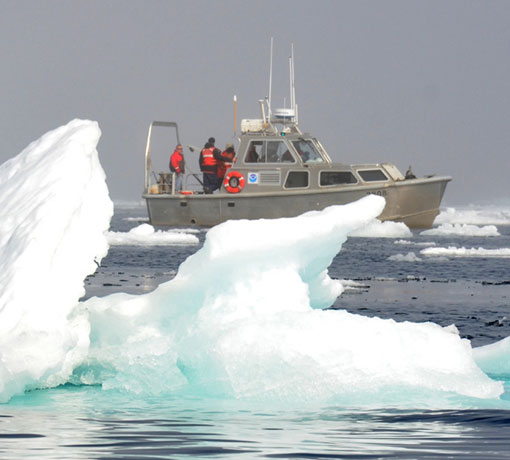To be able to deliver ocean forecasts and early warnings, climate projections and assessments and protect ocean health and its benefits, it is vital to measure Essential Ocean Variables (EOVs).
GOOS EOVs are defined as the minimum set of ocean variables that are needed to assess ocean state and variability for important global ocean phenomena (see GOOS phenomena list), and to provide essential data for applications that support societal benefit.
They are derived from sustained individual measurements, or combinations of measurements, that can be undertaken at global scale and in a cost-effective manner.
Because EOVs are perennial, they allow the observing system to change and develop around them as technology and capability evolve.
Our GOOS Expert Panels identify the EOVs based on:
- Impact: the variable addresses climate, operational ocean services and ocean health and also contributes to understanding from a scientific perspective or application from a service perspective.
- Feasibility: it is technically, politically and economically feasible to observe or derive the variable on a global scale using proven, scientifically understood methods.
When EOVs are identified, our Expert Panels create and share a series of recommendations. These include what measurements are made, observing options and data management guidelines.
The majority of EOVs are also Essential Climate Variables (ECVs) defined by the Global Climate Observing System. ECVs cover atmospheric, oceanic, and terrestrial domains. A number of GOOS ocean observing networks measure atmospheric and oceanic ECVs.
EOV specification sheets
Click to download each EOV specification sheet for details on requirements, tracing through from applications to phenomena to observing, and for authors for queries. The columns indicate the GOOS expert panel that has lead responsibility for each EOV.
Download the 2024 EOV specification sheet template here.
A guide on how to use the EOV specification sheets can be downloaded here.
Where next?

